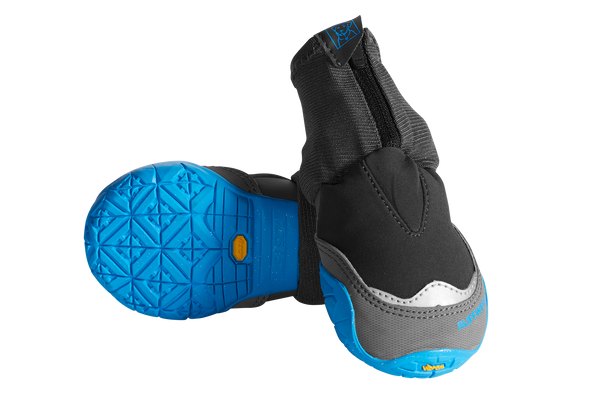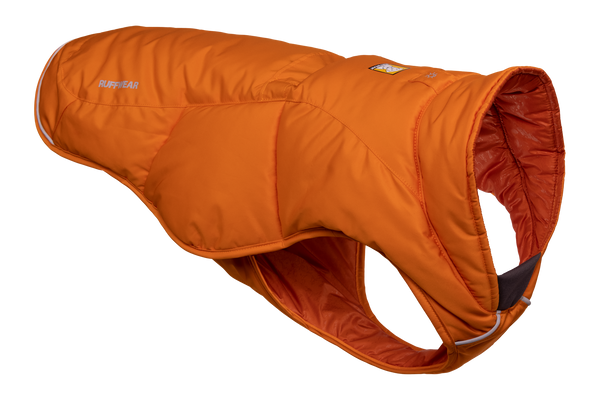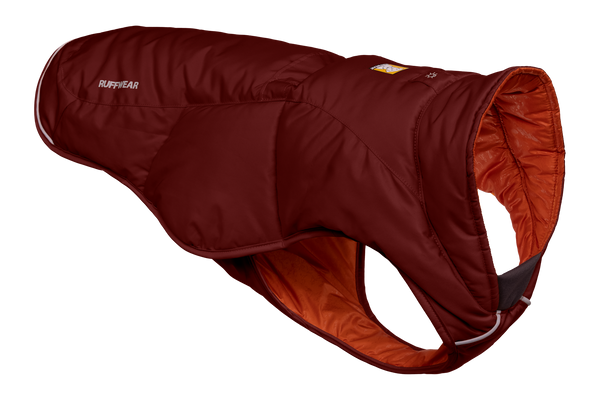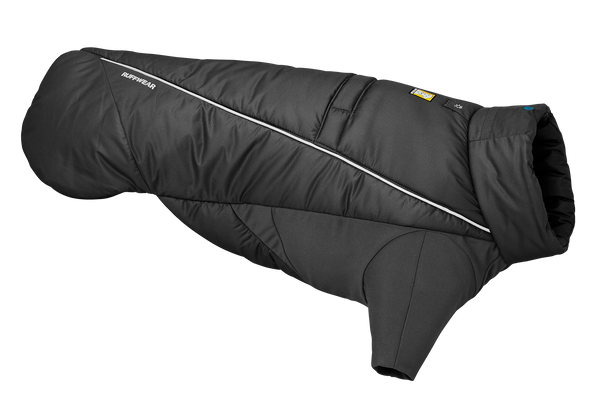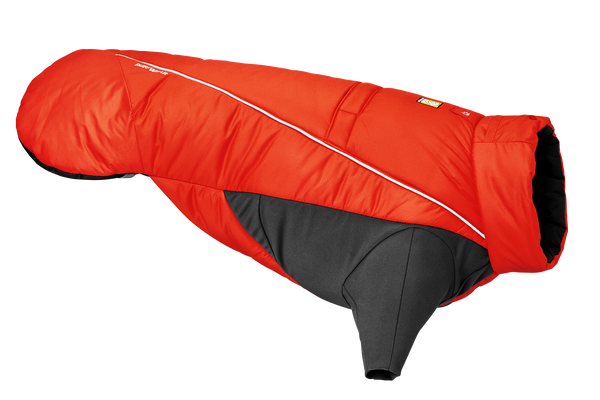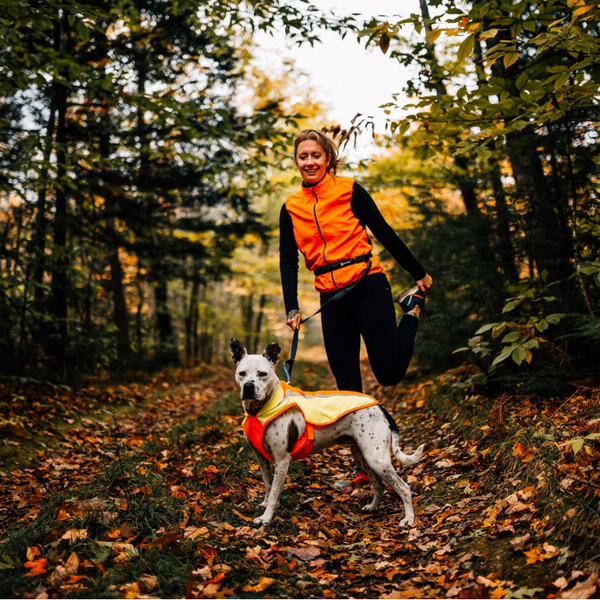My 115-Mile Tidal Potomac Expedition
This past spring, I set an ambitious goal: my Australian Shepherd Kona and I were going to stand-up paddle the entire length of the tidal Potomac River. Starting in Washington, D.C., the tidal Potomac winds between the Maryland and Virginia borders for 115 miles before emptying into the Chesapeake Bay.
The four-day paddle was the idea of my friend and fellow Boardworks ambassador, Guillermo Loria, a Washington D.C. whitewater paddler. The goal was to do an expedition-style trip that would raise awareness of the recreational opportunities available along the Potomac River while simultaneously inspiring others to take part in those activities. Our hope was that getting more people to play along the river would increase the number of people willing to fight to protect it, too. The Potomac River is a national treasure, but the amount a trash making it’s way into the river is a very real problem.

Photography by Ruffwear Ambassador Maria Christina Schultz
Personally, I had another goal as well: to show people that paddle adventures, even ones as big as the tidal Potomac, can be done safely with a dog. After all, dogs like to recreate along rivers just as much as people. Kona has been paddling with me for several years now, but never for more than 5 or 6 miles at a time, I wanted to push the limits to see how far I could take her.
 So for several months, Kona and I trained and prepared. We started by paddling long distances on a new board. I needed to be as efficient as possible because Kona’s extra weight means I have to paddle harder, and the goal would be to paddle 25-30 miles a day. So with speed in mind, I picked out a race board - the 27” x 14’ Boardworks Eradicator. The narrow width and long length would provide a lot more glide. Although it was a new board for Kona, she made herself at home on the first training day, nearly falling asleep on the deck.
So for several months, Kona and I trained and prepared. We started by paddling long distances on a new board. I needed to be as efficient as possible because Kona’s extra weight means I have to paddle harder, and the goal would be to paddle 25-30 miles a day. So with speed in mind, I picked out a race board - the 27” x 14’ Boardworks Eradicator. The narrow width and long length would provide a lot more glide. Although it was a new board for Kona, she made herself at home on the first training day, nearly falling asleep on the deck.
Squeezing in training sessions after work, we would paddle 7, 10, or 15 miles at a time.
Next, we needed a way to secure our gear for each day. I modified the race board by adding tie down points to the front and the back so that I could secure several bags. I also purchased 2 Tahoe SUP Buddy pads and sewed them together to make a non-slippery spot on the nose for Kona. It turned out to be her favorite spot.
 As we got closer to our departure date, the forecast took a turn for the worst. After a week of rain, terms like “tidal anomalies, possible flooding, chances of thunder, and heavy winds,” filled every weather report. The morning of our expedition, I made the tough decision to leave Kona at home the first day for her safety. The decision proved to be a good call as we battled thigh high cop, constant rain, and ugly side winds most of the day. If the rowdy water had washed Kona over the rails of our narrow board, getting to her quickly and trying not to get separated from Guillermo would have been difficult.
As we got closer to our departure date, the forecast took a turn for the worst. After a week of rain, terms like “tidal anomalies, possible flooding, chances of thunder, and heavy winds,” filled every weather report. The morning of our expedition, I made the tough decision to leave Kona at home the first day for her safety. The decision proved to be a good call as we battled thigh high cop, constant rain, and ugly side winds most of the day. If the rowdy water had washed Kona over the rails of our narrow board, getting to her quickly and trying not to get separated from Guillermo would have been difficult.
When the weather cleared on the second day, my husband brought Kona to camp so she could join us. Needless to say, it was a much better day. Having Kona with us added levity and warmth. We covered roughly 25 miles that day, and saw new parts of the river together. Even though it rained on us, having Kona there made it my favorite part of the trip.
 We stopped frequently to let Kona stretch and run along the banks. There was no shortage of tennis balls, soccer balls, footballs to play with. We constantly found them on beaches and in the water. Kona seemed to appreciate the endless supply of toys, but it was litter. How so many balls ended up in the Potomac is quite troubling.
We stopped frequently to let Kona stretch and run along the banks. There was no shortage of tennis balls, soccer balls, footballs to play with. We constantly found them on beaches and in the water. Kona seemed to appreciate the endless supply of toys, but it was litter. How so many balls ended up in the Potomac is quite troubling.
 With the sun shining on the third day, Kona and I started the paddle that morning together. With the wind to our backs, we were making excellent time. But after 8 miles, the winds picked up and started to shift, blowing us into the bank of the river. As the winds increased to nearly 25 mph, Kona became nervous. Her usual relaxed body language was clearly that of “get me out of here.” Guillermo and I decided that Kona needed to be tethered to me. If she fell overboard, we would not want her to get separated from us and thrown into the bank or a dock.
With the sun shining on the third day, Kona and I started the paddle that morning together. With the wind to our backs, we were making excellent time. But after 8 miles, the winds picked up and started to shift, blowing us into the bank of the river. As the winds increased to nearly 25 mph, Kona became nervous. Her usual relaxed body language was clearly that of “get me out of here.” Guillermo and I decided that Kona needed to be tethered to me. If she fell overboard, we would not want her to get separated from us and thrown into the bank or a dock.
 I used the Ruffwear Headwater™ Leash to connect one end to the leash attachment point on Kona’s Float Coat™ Life Jacket and put the hand loop on the other end through my inflatable belt pack PFD. If Kona fell over she would not get separated from me. I was also wearing a leash so I wouldn’t get separated from the board should I fall off. Tied together, Kona and I paddled 2 more miles to a beach where we could call for a ride and get Kona to safety. This would be the end of the trip for Kona. The winds only got stronger that day, and I too, decided it was not safe to continue.
I used the Ruffwear Headwater™ Leash to connect one end to the leash attachment point on Kona’s Float Coat™ Life Jacket and put the hand loop on the other end through my inflatable belt pack PFD. If Kona fell over she would not get separated from me. I was also wearing a leash so I wouldn’t get separated from the board should I fall off. Tied together, Kona and I paddled 2 more miles to a beach where we could call for a ride and get Kona to safety. This would be the end of the trip for Kona. The winds only got stronger that day, and I too, decided it was not safe to continue.
On the last day of the expedition, I once again made the decision to leave Kona at home since the forecast was calling for heavy winds and rain and we had 33 miles to finish. I missed Kona, but I felt good knowing she was safe at home.

I learned some great lessons from this trip. I now know that Kona is up to the challenge of extended paddles with me, seeing how content she was on the board for hours at a time. We dialed in riding on a narrow board, and securing enough supplies to last us both an entire day. I also learned the value of having a leash handy when winds pick up and safety becomes a concern. But most of all, I learned that the weather can be unpredictable, and as much as I love having a dog with me on my adventures, it important to put her safety first. This summer we’ll attempt another multi day trip, and hopefully we’ll have better weather.








